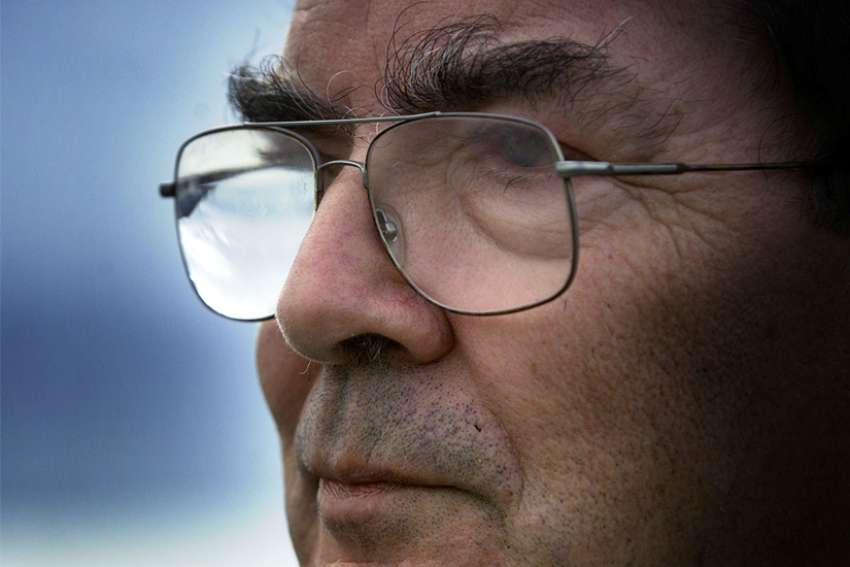“I want to see Ireland as an example to men and women everywhere of what can be achieved by living for ideals, rather than fighting for them, and by viewing each and every person as worthy of respect and honour,” he said. “I want to see an Ireland of partnership where we wage war on want and poverty, where we reach out to the marginalised and dispossessed, where we build together a future that can be as great as our dreams allow.”
Hume, the Catholic leader of the country’s Social Democratic and Labour Party, was the unrelenting champion of peace in an unpeaceful world for over 30 years, his efforts culminating in the Good Friday peace agreement in 1998.
When he died Aug. 3 at age 83, tributes immediately started to flow from around the globe, and rightly so.
“John put Catholic social teaching into practice — sometimes at great personal cost and risk — working ceaselessly for a process of reconciliation through which the dignity of every human person is recognized and upheld,” said Archbishop Eamon Martin of Armagh, Northern Ireland.
Born in Londonderry, Hume was on his way toward studying for the priesthood when he felt the pull of politics, battling the discrimination suffered by the Catholic minority.
Shaped by his Catholic roots and inspired by the non-violent tactics of Martin Luther King, Hume never wavered from his dream of a united Ireland, where violence would have no place.
Idealistic? Yes, but that spirt of reconciliation is exactly what is demanded of all of us. It is not an easy road, but it is a worthwhile one.
Hume engaged both sides in his struggle, famously even sitting down with Sinn Féin leader Gerry Adams and, in 1994, convincing the Provisional Irish Republican Army to agree to a ceasefire in its ever-escalating conflict with Britian. That paved the way, four years and countless dinner-table negotiating sessions later, to the Good Friday Agreement.
That historic document earned both him and Protestant leader David Trimble the Nobel Peace Prize. The Martin Luther King Jr. Nonviolent Peace Prize and Ghandi Peace Prize followed, along with another 16 years in public service, committed to causes that furthered the peace agenda.
In 2012, Pope Benedict made Hume a Knight Commander of the Pontifical Equestrian Order of St. Gregory the Great, honouring his “outstanding services to Catholic social teaching in the area of peace.”
In our day-to-day lives, we’re not likely to be put on a world stage like Hume, but that hardly matters. Each in our own way is capable responding to the call of our Catholic teaching.
“I never thought in terms of being a leader,” Hume once said. “I thought very simply in terms of helping people.”
And so should we.


